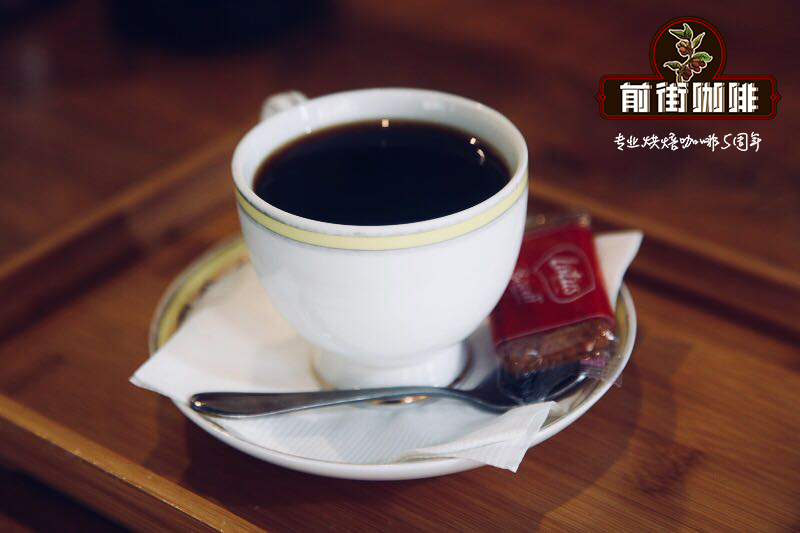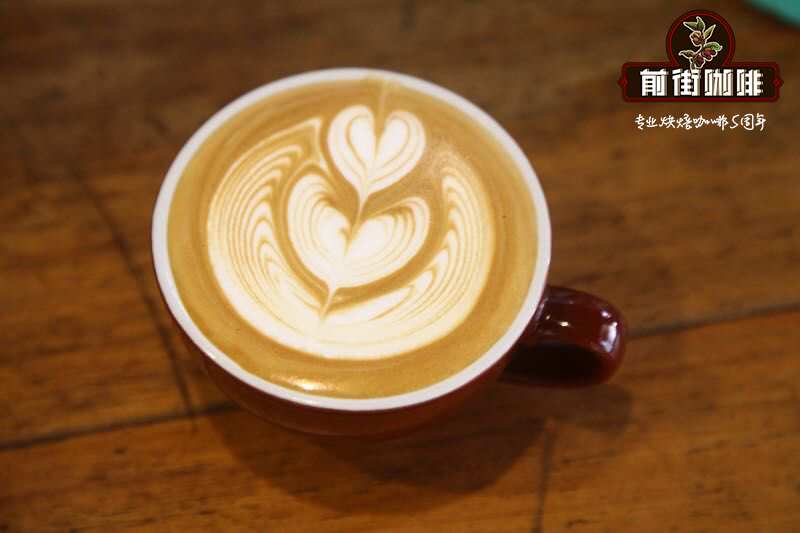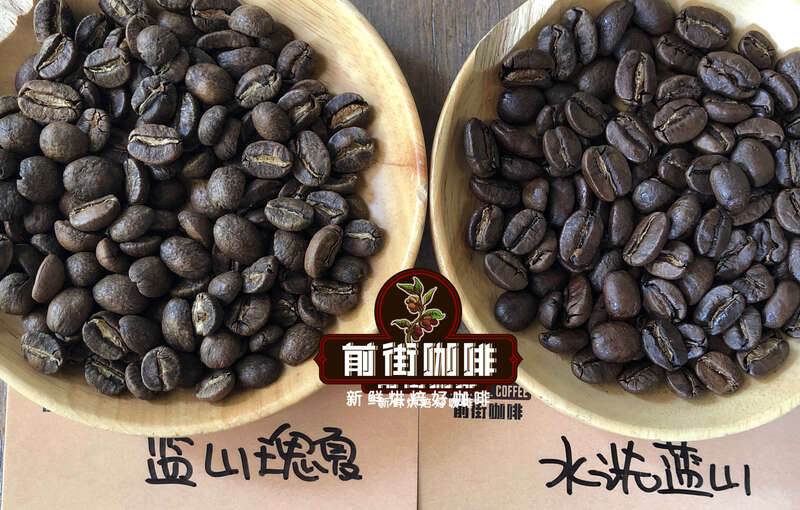How to distinguish between true and false Blue Mountains? Why does Blue Mountain Coffee taste pure?

Professional coffee knowledge exchange more coffee bean information please follow the coffee workshop (Wechat official account cafe_style)
The real Blue Mountain Coffee is one of the most advantageous coffee growing conditions in the world. The weather, geological structure and topography of Jamaica provide a unique ideal place. Designated Jamaican Blue Mountain Coffee can only be grown in the Blue Mountain area, in Kingston, Jamaica is in the eastern north of the island. Moreover, the mountain is very uneven, and the process of harvesting is very difficult (the coffee harvester is almost entirely female). The tree is mainly small grain "GeishaHighBred" type. In the steep and high-altitude mountains, careful farming and harvesting, all Jamaican Blue Mountain coffee is ground, tasted and distributed by the Jamaican Industry Association.
Their coffee trees are on rugged hillsides, and the picking process is so difficult that non-local skilled female workers are simply unable to do it. It is very important to choose the right ripe coffee beans when picking. Immaturity or ripeness will affect the quality of the coffee. The picked coffee beans are shelled on the same day, and then let them ferment for 18 hours. After that, the coffee beans were cleaned and screened. The subsequent process is to dry, which must be carried out on the cement floor or on a thick blanket until the humidity of the coffee beans drops to 12% 14%. And then store it in a special warehouse. Take it out and roast when needed, then grind it into powder. These procedures must be strictly mastered, otherwise, the quality of coffee will be affected.
The Jamaican Coffee Industry Committee was established by the Government of Jamaica in 1950 to develop quality standards for Jamaican coffee and to monitor the implementation of quality standards to ensure the quality of Jamaican coffee. The Commission awarded special official seals to raw and roasted coffee exported from Jamaica, which is the highest-level national coffee institution in the world. At present, there are six kinds of marks that can represent the origin of Blue Mountain Coffee, such as Mafis River Embankment Central Factory (M.B.C.E), Blue Mountain Coffee Cooperative Factory (M.H.C.C.T.), Portland Blue Mountain Coffee Cooperative Factory (P.X.X.S.H.), Coffee Industry Association (Wallenford), Coffee Industry Association (St. John's Peak) and J.A.S.

By 1969, the situation had improved because the use of Japanese loans had improved the quality of production, thus ensuring the market. By now, this kind of coffee has reached the point of being feverishly loved.
By 1981, about 1500 hectares of land in Jamaica had been reclaimed for coffee cultivation, followed by investment in another 6000 hectares of coffee land. In fact, today's Blue Mountain area is a small area with a planting area of only 6000 hectares, and it is impossible to grow all the coffee marked "Blue Mountain" there. Another 12000 hectares are used to grow two other types of coffee: Alpine Top Coffee and Jamaican Superior Coffee. As Japan has always invested in the Jamaican coffee industry, most of the Blue Mountain Coffee is now owned by the Japanese, and they have also obtained the right of priority to buy Blue Mountain Coffee. In 1992, Jamaica sold 688 tons of Blue Mountain coffee to Japan, 75 tons to the United States and 59 tons to Britain. Now, 90% of Blue Mountain coffee is bought by the Japanese. Now that the rest of the world can only get 10% of Blue Mountain, Blue Mountain coffee is always in short supply, regardless of the price.
The coffee in the cup tastes very clean, and it is one of the sweetest coffee in the world. This taste has been described by JimReynolds in Peet Coffee and Tea: "the best example of Jamaican Blue Mountain Coffee is that it is fragrant, smooth and strong, and it makes me feel like a gem. It is as precious as a gem. It's complex, but very mild, it's sweet, it's very mellow. You have to taste it in order to know what I'm talking about. Unique growth conditions, and in all the production process are very careful, making Jamaica Blue Mountain Coffee very famous.
Important Notice :
前街咖啡 FrontStreet Coffee has moved to new addredd:
FrontStreet Coffee Address: 315,Donghua East Road,GuangZhou
Tel:020 38364473
- Prev

How to taste Jamaica Blue Mountain Coffee? Description and benefits of authentic Blue Mountain Coffee Flavor
Professional coffee knowledge exchange more coffee bean information please follow the coffee workshop (Wechat official account cafe_style) ● taste Blue Mountain Blue Mountain Coffee like a lady, to know how to appreciate its unique charm. Under the guidance of a good mood, the dense aroma suddenly curls into an European-style coffee cup.
- Next

What are the flavor characteristics of Blue Mountain Rose Summer Coffee?
For more information on coffee beans, please follow the coffee workshop (Wechat official account cafe_style) the raw bean classification of Blue Mountain Coffee. The Jamaican government established CIB (Jamaica Coffee Industry Committee, the Jamaica Coffee Industry Board) in 1950, which is the government agency responsible for coffee affairs in Jamaica, which is responsible for supervising, regulating and guiding Jamaica's.
Related
- Detailed explanation of Jadeite planting Land in Panamanian Jadeite Manor introduction to the grading system of Jadeite competitive bidding, Red bid, Green bid and Rose Summer
- Story of Coffee planting in Brenka region of Costa Rica Stonehenge Manor anaerobic heavy honey treatment of flavor mouth
- What's on the barrel of Blue Mountain Coffee beans?
- Can American coffee also pull flowers? How to use hot American style to pull out a good-looking pattern?
- Can you make a cold extract with coffee beans? What is the right proportion for cold-extracted coffee formula?
- Indonesian PWN Gold Mandrine Coffee Origin Features Flavor How to Chong? Mandolin coffee is American.
- A brief introduction to the flavor characteristics of Brazilian yellow bourbon coffee beans
- What is the effect of different water quality on the flavor of cold-extracted coffee? What kind of water is best for brewing coffee?
- Why do you think of Rose Summer whenever you mention Panamanian coffee?
- Introduction to the characteristics of authentic blue mountain coffee bean producing areas? What is the CIB Coffee Authority in Jamaica?

